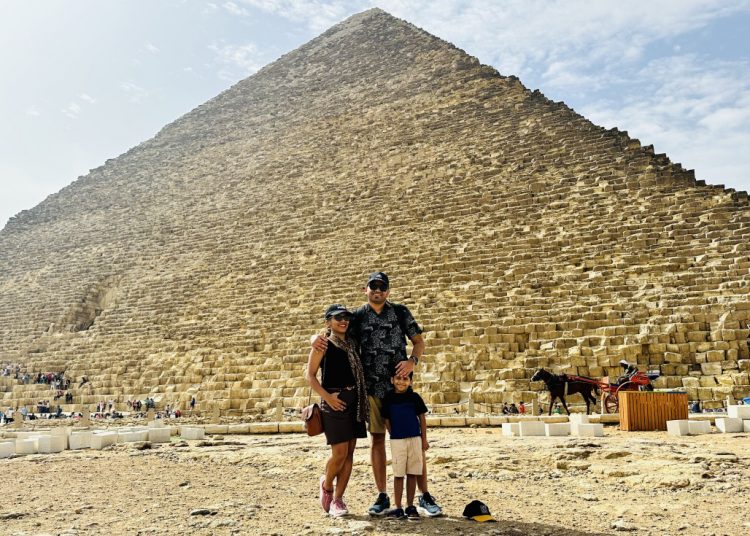Fostering a favourable investment climate across tourist destinations, increasing the number of hotel rooms, and advancing the tourism industry are the objectives of a LE50 billion tourism support initiative recently launched by the government.
Under the new initiative, the government will provide substantial financial incentives to encourage companies operating in the tourism sector to expand their hotel room capacity, a move aimed at accommodating the growing number of tourists flocking to the country.
The cabinet said in a statement that the initiative targets hotels located in prominent tourist destinations, including Greater Cairo, Luxor, Aswan, the Red Sea, South Sinai and the North Coast. By focusing on these key areas, the government aims to maximise the potential of Egypt’s thriving tourism industry and leverage its unique attractions to boost the national economy.
Investing in new hotel rooms would yield significant returns for the economy. Every 15,000 additional hotel rooms can generate a value-added tax of approximately LE2 billion, along with an estimated LE2 billion in commercial tax and industrial profits, the cabinet’s statement added.
Furthermore, this expansion is expected to create roughly 45,000 new direct and indirect job opportunities, providing a much-needed boost to the labour market, the statement said.
It further said that the incentives offered under the initiative are also projected to bolster Egypt’s foreign currency reserves while simultaneously combating unemployment rates.
To be eligible for these incentives, companies must meet specific criteria. One of the conditions stipulates that participating companies will need to exchange 40 per cent of their hard currency revenues through the banking system over a five-year period. This measure is intended to promote transparency and ensure the proper flow of funds within the banking sector.
The initiative will be implemented in collaboration between the Ministry of Finance, the Central Bank of Egypt, and the Ministry of Tourism and Antiquities.
Egypt’s tourism sector is one of the country’s main earners of foreign currency. After a downturn during the Covid-19 pandemic and early days of the Russian-Ukrainian war, the sector has been showing signs of recovery. In the first seven months of 2023 the number of tourists visiting Egypt increased by 40 per cent compared to the corresponding period last year.
Prime Minister Moustafa Madbouli had previously said that the government aims to receive 30 million by 2028.
Elhami el-Zayat, a former chairman of the Egyptian Tourism Federation, told this newspaper that the state’s strategy to attract 30 million tourists and generate at least $30 billion in the next four years would mean a 100 per cent increase in current hotel capacity.
Egypt now has 216,000 hotel rooms capable of accommodating 16 million tourists. Thus, there is a pressing need to construct the same number of rooms within just four years to meet these ambitious targets, he added.
Moreover, the new initiative is important to help expansion of establishing new hotel rooms and open existing but currently closed ones.
El-Zayat asserted that streamlining bureaucracy is necessary to achieve the goal of attracting 30 million tourists within four years.
He proposed streamlining the bureaucracy through legislation mandating that anyone seeking to establish a hotel must submit all the required documents in full in one submission.
“We are currently dealing with many bureaucratic entities, and the timeline for completing licensing procedures could take more than one year,” el-Zayat said.
To attract investors, he added, it is imperative to remove obstacles, simplify procedures, and reduce the time required to obtain approvals.
Meanwhile, tourism expert Moustafa el-Naggar said that the new initiative is important to encourage investors in the tourism sector expand the establishment of new hotel rooms, especially with the emergence of new tourist destinations in Egypt, such as the North Coast and Alamein
“These new destinations represent a fresh style of tourism that particularly appeals to Arab tourists,” el-Naggar said.
He added that this attraction is reflected in the spending habits of Arab tourists in these areas, who often spend between $500 to $1,000 per day. They typically stay for approximately two weeks, contributing directly to state revenues
But, el-Naggar noted, hotels in these destinations are often limited and operate seasonally, typically for two or three months a year. Therefore, he stressed the need to encourage tourism investment in these new destinations.






Discussion about this post